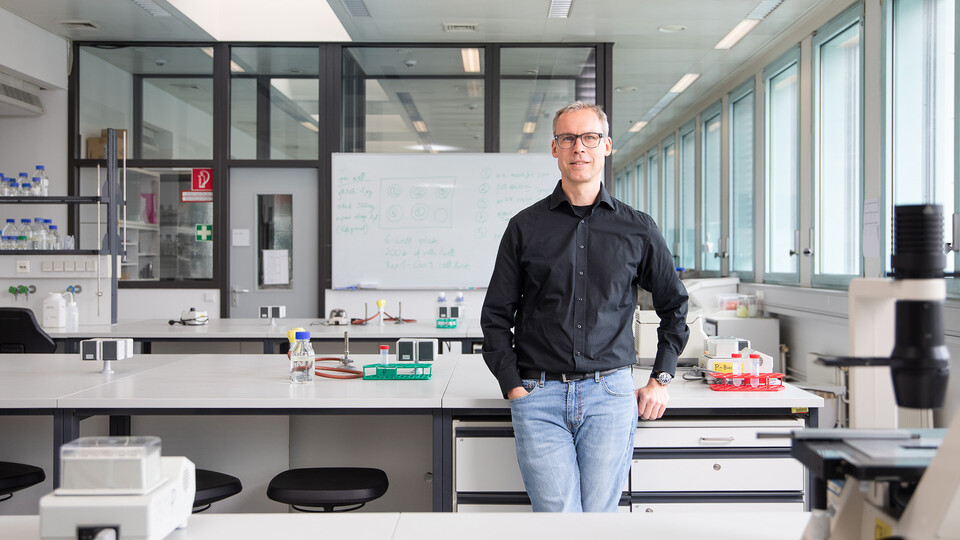
Human cells continuously produce new proteins and degrade old ones to stay healthy. When this delicate balance is disrupted, misfolded proteins can form aggregates that are harmful to cells. In healthy cells, autophagy helps to clear such damaged material, but recent findings suggest that some large protein aggregates can resist degradation. Sascha and his team aim to understand how autophagy copes with difficult-to-degrade protein aggregates. “Our research suggests that autophagy has built-in mechanisms to prevent or reverse the build-up of toxic aggregates”, Sascha explains. “We want to find out how these protective mechanisms work and how they can be strengthened. In this way, we may be able to restore the cells’ ability to eliminate harmful protein deposits – a key step toward new treatments for age-related neurodegenerative diseases.”
DegrAbility marks Sascha Martens’s third ERC-funded project, following a Starting Grant (2010) and a Consolidator Grant (2015), both focused on unraveling the mechanisms of autophagy. The Synergy Grant brings together the Martens lab’s expertise in biochemistry and cell biology with the Kraft lab’s molecular insights into the regulation of autophagy. The Hurley lab will complement the team with reconstitution and high-resolution structural analysis of the autophagy machineries. Together, the researchers aim to pinpoint the vulnerabilities of autophagy and explore how cells’ natural repair mechanisms can pave the way to treat neurodegenerative diseases.
This new ERC award is the 23rd secured by researchers at the Max Perutz Labs and the third in the institute’s 20th anniversary year, underscoring its continued momentum as a leading European center for mechanistic biomedicine.
About Sascha Martens:
Sascha Martens earned his PhD in 2004 from the University of Cologne, Germany, and subsequently worked as a postdoctoral researcher at the MRC Laboratory of Molecular Biology in Cambridge, UK. In 2009, he joined the Max Perutz Labs to establish his own research group, where he investigates how the process of autophagy helps keep our body’s cells healthy. DegrAbility is now his third project funded by the European Research Council (ERC).